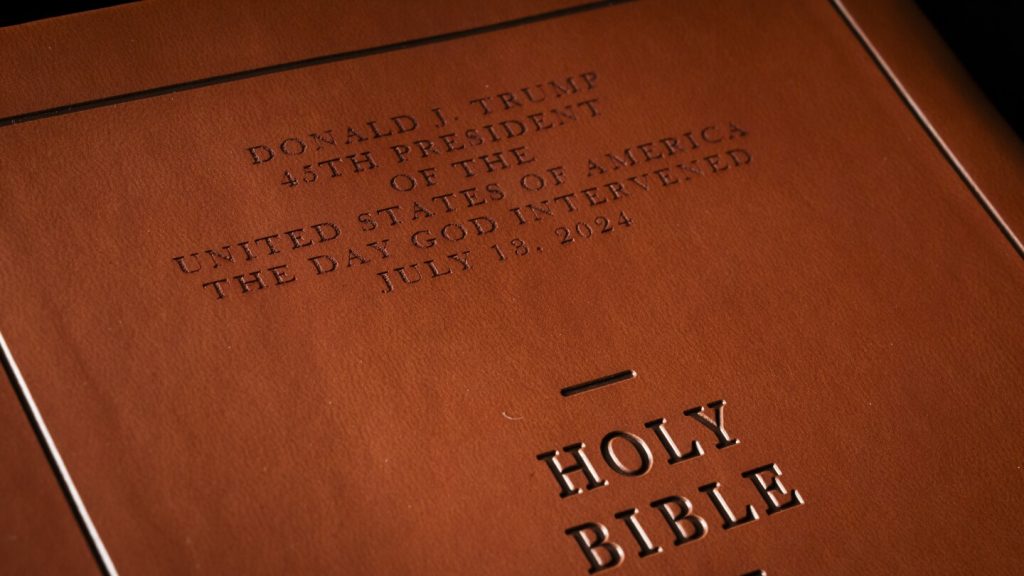Former President Donald Trump’s “God Bless the USA” Bible has been revealed to have been printed in China, a country he has criticized for stealing American jobs and engaging in unfair trade practices. Global trade records show that close to 120,000 copies of the Bibles were shipped to the United States from China, with an estimated value of $342,000. Despite the minimum price for the Trump-backed Bible being $59.99, potential sales revenue is estimated at about $7 million. This connection between the Trump Bible and China highlights the stark contrast between Trump’s anti-China rhetoric and his eagerness to profit from the venture.
The most recent shipment of 70,000 copies of the Trump Bible arrived in the United States on March 28, following an announcement by Trump on his Truth Social platform that he had partnered with country singer Lee Greenwood to promote the Bibles. In the promotional video, Trump emphasized the importance of religion in making America great again, linking the Bible to Judeo-Christian values under attack. The Bible includes copies of important American founding documents like the U.S. Constitution, Declaration of Independence, and Pledge of Allegiance. Trump did not disclose the printing location or cost of the Bibles, and a hand-signed copy by him sells for $1,000.
The website selling the Trump Bible states that Trump’s name and image are used under a paid license from CIC Ventures, a company owned by Trump. CIC Ventures earned $300,000 in Bible sales royalties based on Trump’s financial disclosure. The potential conflicts of interest arising from Trump’s for-profit ventures, including the sale of the Bibles, have raised ethical concerns. Selling products at prices exceeding their value may be perceived as a campaign contribution, according to ethics experts, and mixing religion and state through such ventures is deemed problematic.
Despite Trump’s robust anti-China stance during his presidency, his willingness to profit from Chinese manufacturing for the sale of the Bibles has drawn scrutiny. Trump’s administration exempted Bibles and other religious texts from tariffs imposed on Chinese goods, creating a potential conflict of interest scenario. Notably, Oklahoma’s plan to incorporate the Trump-endorsed Bibles into public school lessons further emphasizes the intersection of politics, religion, and profit in this venture. The Chinese printing company responsible for shipping the Bibles to the U.S. confirmed the deliveries and stated that the orders came from Freedom Park Design, a company in Alabama.
Critics have denounced the Trump Bible as a toxic mix of Scripture and government documents, with concerns that it could fuel Christian nationalism sentiments. The decision to stamp the Bible with nationalistic symbols has raised objections among religious scholars, authors, and ministers, who view the act as blasphemous and heretical. Some reviewers have also criticized the quality of the Bible, noting issues like cheap materials, poor printing, and lack of essential information. Overall, the revelation of the China connection in the manufacturing of the Trump Bible has brought to light the complex intertwining of politics, religion, and profit in this controversial venture.


